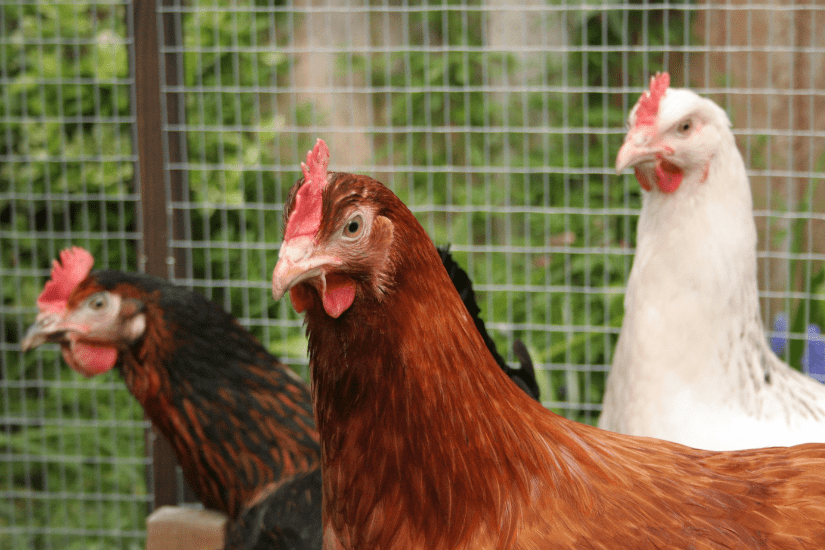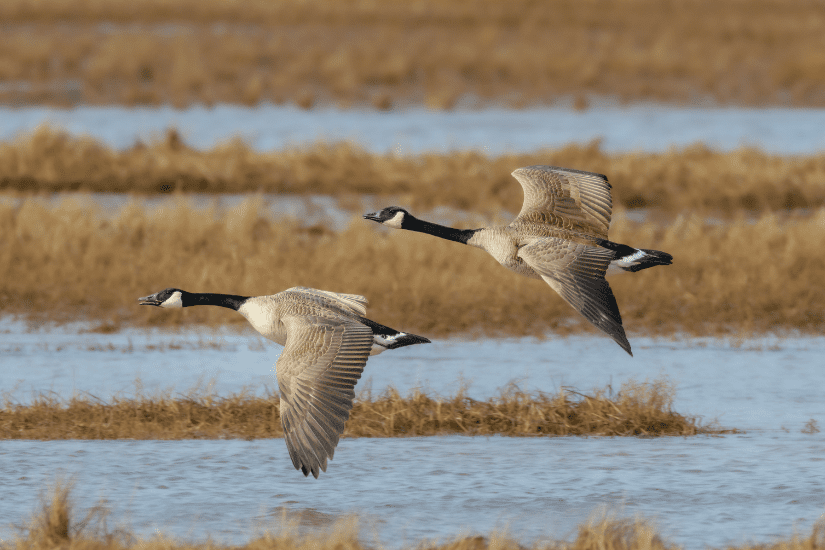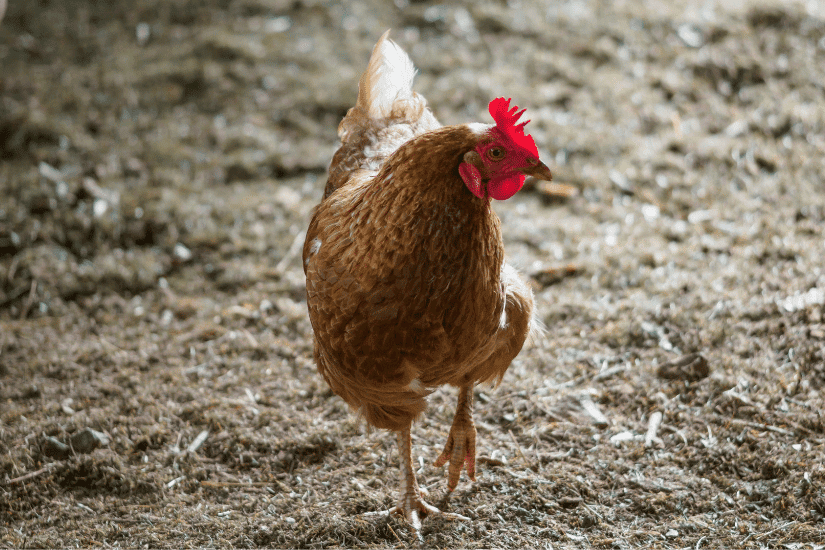Raising backyard hens has become popular among those seeking a sustainable source of cage-free eggs. Aside from ensuring you have the knowledge and resources to adequately care for backyard hens, guardians must also be aware of the disease risks associated with keeping hens, particularly avian influenza.

What is avian influenza?
Avian influenza, also known as “bird flu,” is a viral infection that spreads easily and quickly among birds and can also be spread to people and other animals, such as cats. Avian influenza viruses are naturally present in wild bird populations, particularly waterfowl such as ducks and geese. Typically, wild birds carry bird flu without being affected, but they can spread the virus to domestic birds (such as poultry on commercial or hobby farms). Certain avian influenza viruses can cause serious and potentially fatal disease in domestic poultry.
Domestic birds are at risk of catching bird flu when wild birds migrate through Canada in the spring and fall months. Avian influenza viruses are transmitted through bird secretions or feces. Infected wild birds can spread the disease through direct contact with other birds or by contaminating shared environments (e.g., ponds and fields).

A highly pathogenic strain of avian influenza (HPAI) is circulating worldwide, causing severe illness and death in birds. Poultry farms across the country have had outbreaks of HPAI with devastating consequences. There is currently no treatment for infected birds. For backyard hen guardians, it’s critical to have preventative measures in place to keep your birds healthy and to prevent the spread of this severe disease.
Protect your backyard hens
You can help protect your backyard hens by following these five biosecurity rules:
1. Prevent contact with wild birds
Keep your backyard hens in a covered run (containing their coop) that prevents exposure to wild birds. Feed and water should be stored in an enclosed area to avoid contamination. Feed spills should be promptly cleaned, and any bird feeders, bird baths, or other sources of standing water near the coop should be removed to avoid attracting wild birds.
2. Keep the coop clean
Maintaining a clean environment can help prevent the risk of disease spread. The hens’ environment should be routinely and thoroughly cleaned, removing used litter and disinfecting feeders, waterers and other equipment. Avoid sharing equipment with other bird owners. Use dedicated clothing and boots, and always wash your hands before and after entering the coop.
3. Monitor for symptoms
Chicken guardians need to know the signs of illness and report early. Birds infected with avian influenza may show one or many of these signs:
- Lack of energy, movement or appetite
- Decreased egg production
- Swelling around the head, neck and eyes (wattles and combs)
- Hemorrhages on the hock
- Coughing, gasping for air or sneezing
- Tremors or lack of coordination
- Diarrhea
- Quietness and extreme depression
- Sudden death
Chicken guardians are legally responsible for notifying authorities of serious diseases such as bird flu. If you suspect your birds may have bird flu, call your veterinarian or a local office of the Canadian Food Inspection Agency (CFIA).
4. Restrict visitors
People can spread diseases, too! In general, do not allow visitors to interact with your hens. If necessary, ensure their clothing, hands and footwear are clean – shoe covers or a foot bath can help prevent disease from entering or leaving your property.
5. Quarantine new birds
New hens entering your flock should be separated and monitored for at least 30 days before being introduced to the rest of your flock. Make sure that new hens come from reputable suppliers with strict biosecurity protocols.

Following these five basic rules in the day-to-day care of your backyard hens can help reduce the risks posed by avian influenza. The CFIA is responsible for Canada’s disease response to avian influenza. Additional information from the CFIA:
Subscribe to FarmSense
Stay updated on the latest news and actions to take for farm animals!
The BC SPCA uses your personal information to update you on our work for animals as well as for advertising and analytics purposes. More information on uses and how to opt-out can be found in our Privacy Policy.
